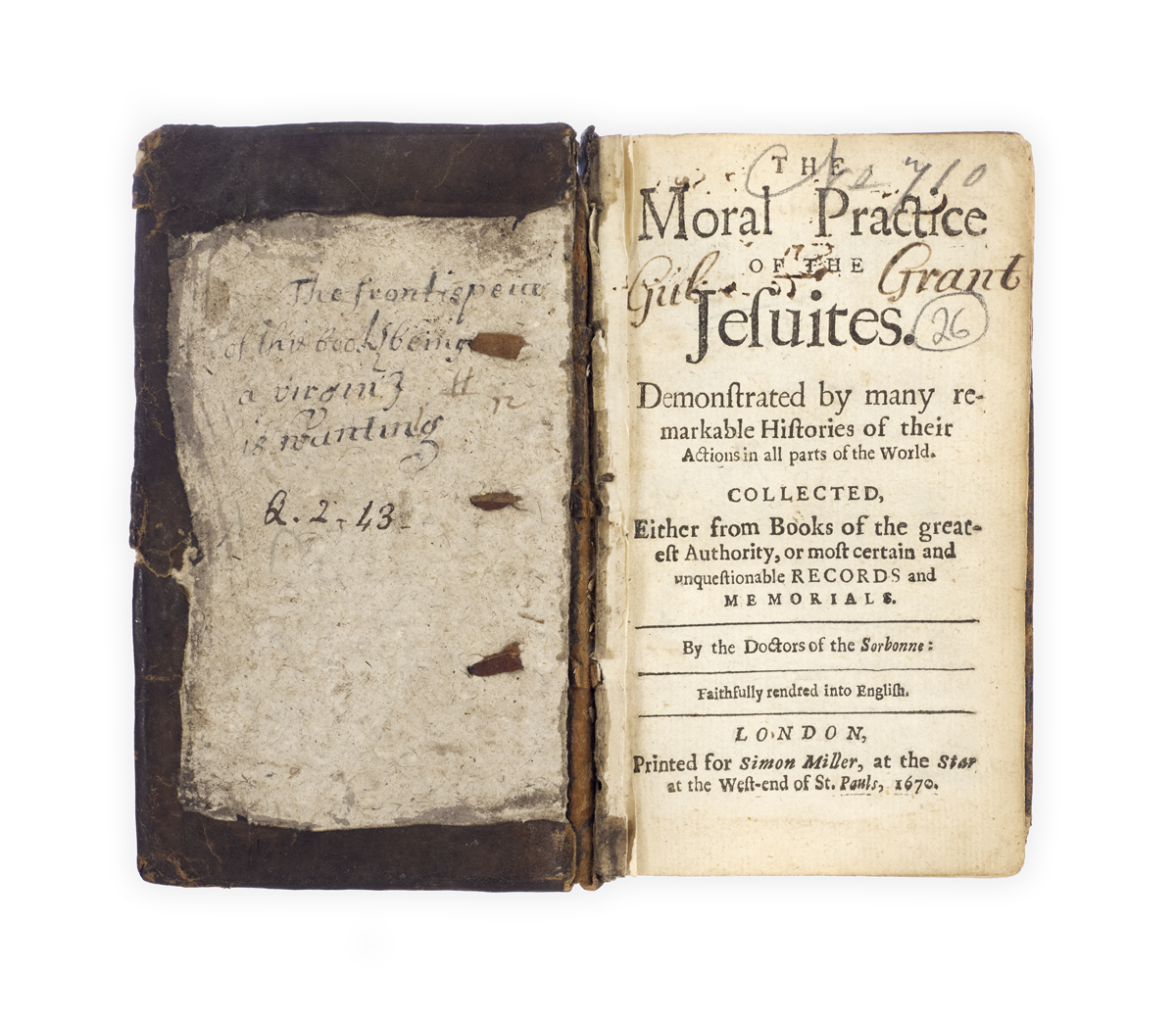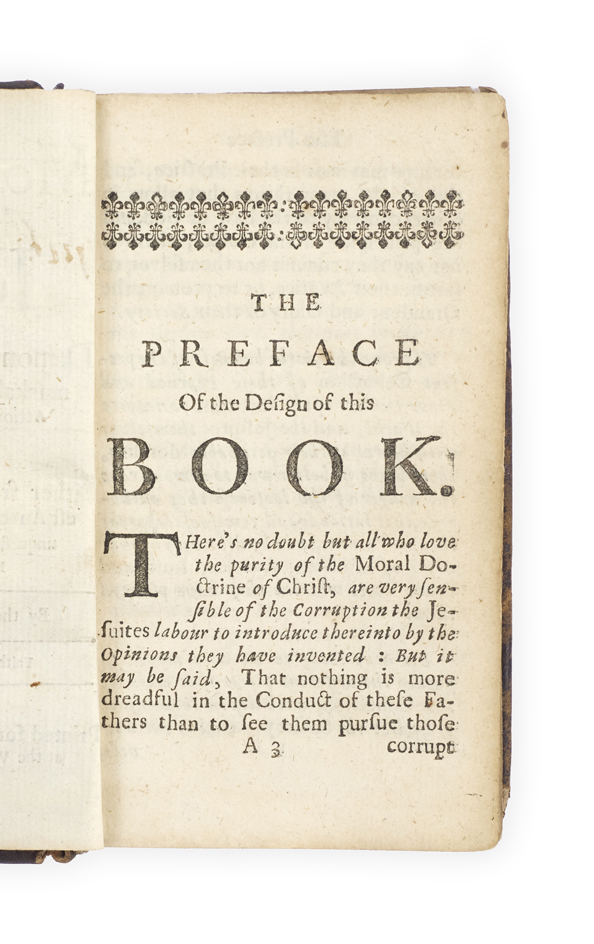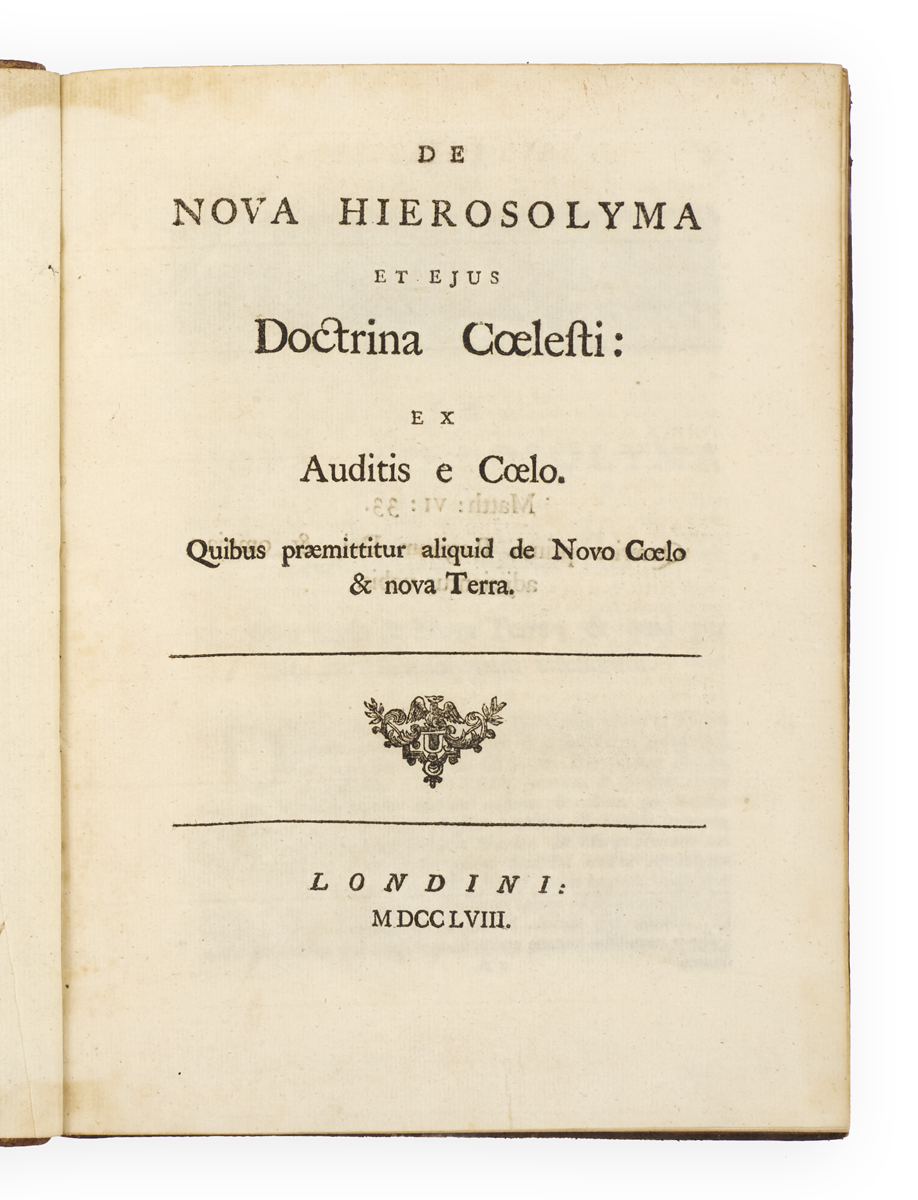

ON JESUIT MORALITY (OR LACK THEREOF)
CAMBOUT, Sébastien Joseph du, and John EVELYN (attributed translator)].
The moral Practice of the Jesuites. Demonstrated by many remarkable Histories of their Actions in all parts of the World. Collected, Either from, Books of the greatest Authority, or most certain and unquestionable Records and Memorials. By the Doctors of the Sorbonne. Faithfully rendred into English.
London, Printed for Simon Miller, at the Star at the West-end of St. Paul’s, 1670.
12mo, pp. [34], 405, [2 (printer’s advertisements)], [1 (blank)], lacking the blank leaf A1; occasional light toning, small tear to the fore-edge of D4 not affecting text; in contemporary English calf sewn on three thongs laced in, double-filleted in blind, spine ruled in blind, speckled edges; small chip to head of spine, corners bumped, lower board scuffed; ownership inscription of William Grant to title-page (‘Gul. Grant’) and to final blank (‘Ex Libris Gulielmus Gra[n]t JDC […] 1694').

Added to your basket:
The moral Practice of the Jesuites. Demonstrated by many remarkable Histories of their Actions in all parts of the World. Collected, Either from, Books of the greatest Authority, or most certain and unquestionable Records and Memorials. By the Doctors of the Sorbonne. Faithfully rendred into English.
First edition in English of La morale pratique des Jesuites (1669), a polemical Jansenist critique of Jesuit practices intended to ‘inspire the World, and the Jesuites themselves, with horror at their detestable Morality’ (p. [4]).
With a distinct emphasis on the avarice and pride of the Jesuits, La morale pratique des Jesuites was published in eight volumes, the first two of which were compiled by Sébastien Joseph du Cambout and the remainder by Antoine Arnauld. The present work is a translation of the first volume, frequently attributed to John Evelyn. In it, the Jesuits are accused of immoral doctrine as well as practice through a series of extracts, among them a prophecy by Hildegard von Bingen foretelling the rise of ‘men without a Chief, who shall feed and grow fat upon the sins of the people’ (p.5); it is followed by a line-by-line analysis connecting each element of the prophecy to an element of Jesuit corruption. They are characterised, inter alia, as ‘familiar with ladies, and with other women, and teaching them to cheat their husbands’; ‘living deliciously’; ‘shameless in their behaviour’; ‘studious to invent new ways to do mischief’; ‘depriving the poor, the miserable, and the sick of their Almes’; and ‘cajoleing the populace, and courting their favour’ through embellished accounts of their travels in Japan, Poland, Germany, and Rome.
A near-contemporary inscription to the front pastedown reads ‘reads ‘The Frontispiece of this book being a virgin is wanting’; this is likely a misunderstanding, as such a frontispiece is mentioned on p. 4, though in reference to the 1640 Image du premier siècle de la Societé des Jesuites.
Provenance: Likely the William Grant (1609–1678) who received his BA from Trinity College, Cambridge, in 1627 and MA from Exeter College, Oxford, in 1633; he was later vicar of Islesworth (Middlesex), where his parishioners ‘brought twenty-one articles against him in Parliament in 1641’, for such charges as opposing the practice of psalm-singing; he was said ‘to have “called the singing Psalmes, Hopkins Jigges, and affirmed that he had rather heare a pair of Organs ten to one, then the singing of them’.
ESTC R15181; USTC 3087878. Barbier III, col. 355; Sommervogel XI 728b; Wing D2415.

